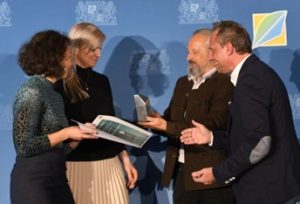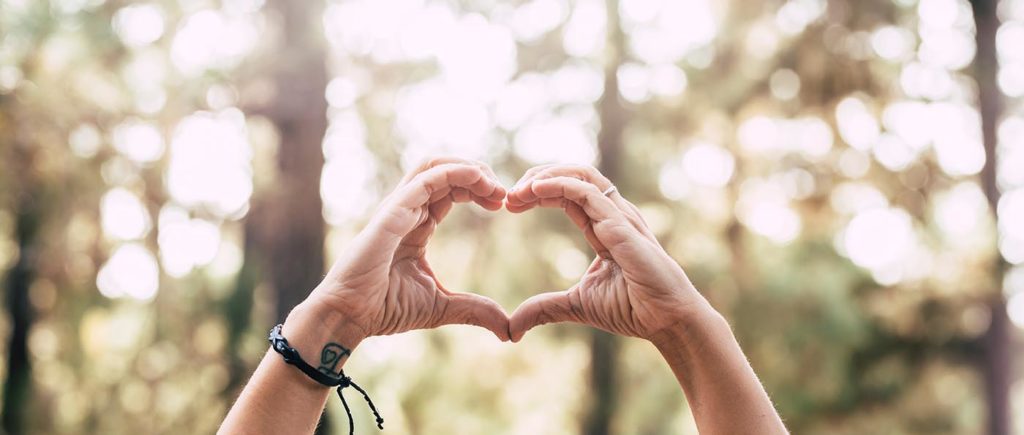
Dear donors, CO2 expansion joints, Supporters of all genders and of any kind, Thank you very much for your support!
All the results that follow could only happen because you have made your contribution.
State of affairs

Peter Bassey in Nigeria
our first start-up, continues to produce biochar from water hyacinths (WHZ). He also uses the WHZ for the Production of everyday objects. It takes time, because the local people first want to see on a small scale whether it really works.

Kenya 1 – Bahati Village at Lake Ol'Bolossat
with Cranes Conservation Volunteers (CCV)

Larger and many smaller gardens with biochar.

Lake Ol’Bolossat, a lake at 2,300m above sea level, is about a 2-hour drive north of Nairobi. There is the main distribution area of the endangered crowned cranes.
In recent decades, the population has decreased by over 80%.
The main reasons are the decreasing reproduction rate and poaching.
Cranes Conservation Volunteers (CCV), a local NGO, has managed to increase the reproduction rate from 0 to 94 fledgling cranes with education.

THE PROBLEM - then came Salvinia molesta!

Salvinia is an aquatic weed that suppresses all other plants, including reeds.
Without reeds, the nests are unprotected and are robbed by predators and birds of prey.
And the local people do not have enough to eat and collect the eggs from the nests and poach the adult birds.
The ornithologist Werner Schröder from Lower Saxony then asked us if we could not make biochar from salvinia to improve the situation for the cranes.
You can make biochar from any biomass.
In most cases, the technology has to be adapted somewhat.
Walter Danner then flew to Kenya in the fall of 2021 to make biochar from Salvinia for the first (worldwide) time.
THE IDEA
is to make Salvinia molesta the basis for food security, food sovereignty, wealth creation and the improvement of the situation of women on the ground .
Then the collection of eggs and the poaching of the adult birds stops.

In the first step, as a test and proof-of-concept, a community garden was established for Bahati Village, a village with 350 inhabitants.
The village is located directly on the lake and in the immediate vicinity of the breeding grounds.
The start was in autumn 2022. Since there is enough water, there will be the third harvest in the community garden in July 2023, after 9 months.

January/February is the annual dry season and almost nothing grows.
That’s why women from the neighboring villages came very curiously, because word got around that there are lots of vegetables in Bahati.
This was completely unknown until now. Biochar and, of course, the water supply we have installed have had an effect.
It is not “magic” as the women suspect.
Biochar is like a “sponge” in the soil and only releases water and nutrients to the plant.

Once biochar is in the ground, anyone can achieve high yields.
Biochar turns poor, weathered tropical soils into fertile soils.

Home gardens as the key for women's independence.
In the next step, house gardens were created.
The families did this themselves with the support of CCV and C2C.
Almost every family now has a home garden.
The harvests are so good that the families no longer need the vegetables from the community garden.
Now it is being donated to a school for the disabled.
At the last collection, it was 162 kg of vegetables.


The family gardens are up to 100m² in size.
This is sufficient for a family of several people.
Some women can even sell the surplus of vegetables.
With their gardens, the women now ensure the nutrition of the whole family. This improves their social status. They are no longer dependent on men’s money.
And also no longer from food prices, which have risen by up to 65% since August last year (WDR 5 “Anger is increasing – Kenyans can no longer afford food”).

We wanted vegetables to stop poaching and collecting eggs. We have achieved this. And even more important is the empowerment and empowerment of the women in the village.
“The women from the neighboring village are already asking if they can participate.
One of the neighbors has already been adopted.” This strengthens self-confidence.
Intensifying cultivation
We are now showing and training the women to plant more densely.
It is tradition to have large planting distances. This is also necessary with these poor soils so that each plant gets enough nutrients.
With biochar you can plant 2-3 times as many plants
plant on the same area.
Because the nutrients are retained by the PK, and because the water in the soil does not evaporate, the same area can feed more plants.
This is again a test and proof-of-concept.
We want to find out how intensively we can grow.
All organic farming. If we manage to double, or rather quadruple, the productivity of the area, then people will need less land for supply.
Then we can return areas to nature and also reforest former forest areas with local species.

This is again a test and proof-of-concept.
We want to find out how intensively we can grow.
All organic farming.
If we create double, or better quadruple, area productivity, then people will need less land for supply.
Then we can return areas to nature and also reforest former forest areas with local species.

Kenya / The school garden
at Kianduba Primary School
A school garden was established there.
Students from all over the area come together here. Some children walk up to 2 hours to school.
The students are now learning how to grow vegetables successfully. They also carry this know-how into the families.


The biochar comes from Salvinia molesta, the water weed from the lake.
At home on the farm or in the home garden, much less grows than in the school garden.
When the students see the differences, they give the insights to the family. That’s the expectation of us.
The costs for both garden projects and the family gardens were borne by pupils of the Theodor Mommsen School in Lübeck.
The costs are only 1,600€, because the local partner organization CranesConservation Volunteers is very economical with money.

January/February is the dry season.
The lake had dried up.
This made the Salvinia easy to collect.
The donkey cart takes them to the drying area in the village.
The women do the drying.
When the Salvinia has only 10% moisture left, it is perfect for carbonation into biochar.
Kenya 2 – Watamu on the east coast of Kenya
with Bahari Hai and AGA (Arbeitsgemeinschaft Artenschutz)
In Kenya/Watamu, a large community garden with biochar has been created.
This is a cooperation between AGA (Arbeitsgemeinschaft Artenschutz), the local NGO Bahari Hai and Char2Cool.
The AGA reported in the summer of 2022 that more sea turtles are being caught and eaten again. The reason is the rising food prices in Kenya. The main food corn flour has become 65% more expensive. People there already spend 40-50% of their income on food.


C2C has transferred €22,000 to AGA for the further measures.
AGA forwarded the money to Bahari Hai.
Here you can see how C2C works.
We support existing and successful organizations with our know-how, our network relationships and your money. This is how we bet your money most effectively.
There are alsomangrove forests with about 2,300 ha. These are threatened by firewood felling and the collection of worms for fishing.
The fishermen chop off the roots to get the worms out underneath.

Mangroves bind about 5 times as much CO2 as tropical jungle.
With a newly built worm farm, worms are bred for fishing and income is generated. The fishermen have accepted this well because they save a lot of time. C2C financed the garden and the worm farm from its own funds (CO2 compensation via C2C website). We achieved this with €2,000.

Kenya 2 – Watamu on the east coast of Kenya with Bahari Hai and AGA (Arbeitsgemeinschaft Artenschutz)
There are about 20 women who have joined forces to form a cooperative. This is about reforestation and orchards, starting from the local population – not a CO2 project initiated from outside. Bahari Hai supports the cooperative.
“This nursery is called MsituWomen’s Group, which Sammy
(=Bahari Hai) about 15 years ago and whom he has accompanied as a mentor and supporter ever since.
As part of this project, we are introducing them to the use of biochar so that they can achieve better yields and have a more resilient nursery (against drought, etc.).


They have no water at the location and have to buy it expensively. This adds up to €3,000 per year. A borehole costs a one-time fee of €2,600. A well has paid for itself for the women within a year.
But the women do not have the money to have a well drilled.
The biggest problem for women is water.
And then there is the sandy soil, which cannot hold water.
C2C has pre-financed this, and we are now starting a fundraising campaign to collect the money in Germany.
When Walter Danner was in Kenya, he built a C2C kiln together with Sammy from Bahari Hai and the women and tested it right away.
What's next in Watamu?
The individual projects until mid-2024
The partner here is SchuPa e.V.(school partnership) from Munich.
The association supports 5 schools there. C2C contributes the know-how here.
The costs have so far been borne by the SchuPa.
In Tanzania , an existing school garden was improved with PK. The harvest has improved significantly.
The school garden provides the pupils with food.


Ilembula Secondary School 06.05.23 –
“Today our students worked in the garden to remove the older leaves so that our vegetables can continue to grow. We have also realised that biochar can really make a big difference, as long as it is kept moist.”
The next step is to improve irrigation in order to have enough vegetables for the kitchen even in the dry season.
South Africa / Cape Town
1 - Butterfly Way EducareKindergarden Muizenberg –
Garden for vegetable production
In Cape Town/South Africa, a garden was created in the “ButterflyWay Kindergarten” for the care of the children.
Children from the nearby township are cared for there.
The next step is to build backyard gardens in the township as private gardens.
Several kindergartens in Cape Town have asked for support for the creation of a garden. The PK comes from the Khayelitsha Biochar Makers.


A solar cooker from EG-Solaraus Altötting has arrived in Cape Town.
The charcoal for cooking is to be replaced. This is financed by EG-Solar.
2 - Khayelitsha Canoe Club - Biochar Makers
A start-up,
which is supported by C2C.
Siyanda and his brother have founded aninitiative for unemployed young people from the township of Khayelitsha.
With the canoe club, young people learn how to paddle and provide income from paying tourists who come to paddle along the river.

Then water hyacinths blocked the river. And the income.
Now the production of biochar from water hyacinths has begun. We are still at the beginning here. Success stories will come soon.

And then we're on To turn water hyacinths into biochar:

In Sri Lanka
Thomas Betzold from Berlin is currently setting up a biochar production facility from water hyacinths.
He moved to Sri Lanka in 2023.

Three reasons why we invest your money in these projects:
A new project partner
Malawi-Hilfe Schwindegg e.V.

At the beginning of July 2023, we had a booth at the Bavarian One World Days in Augsburg.
This serves to network the groups and organisations in Bavaria.
There, Malawi-Hilfe Schwindegg asked us if we could support them in biochar, horticulture and agriculture. We are happy to do that
Sincerely,


















